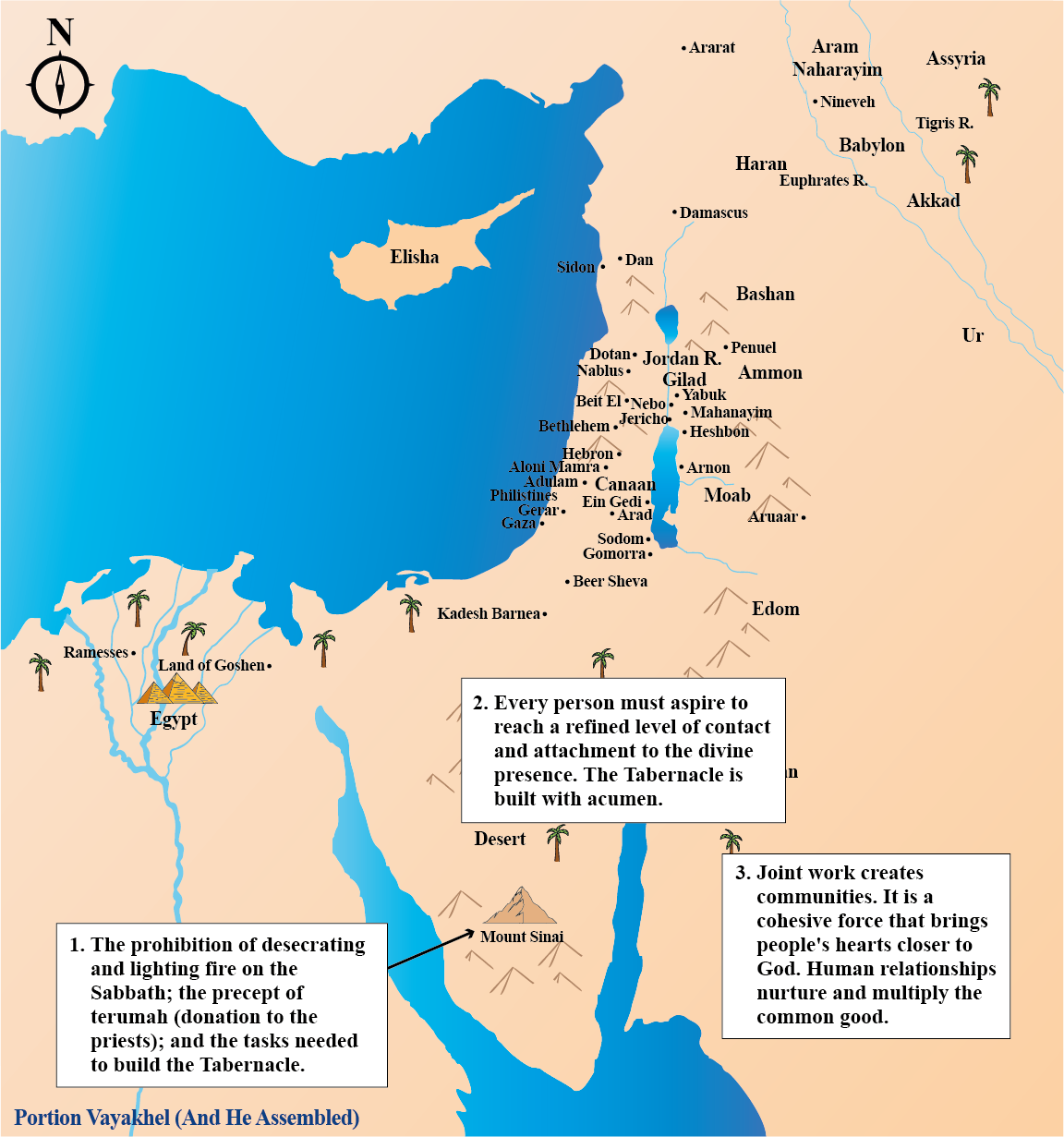
God gives the Sabbath to the Israelites
“And Moses gathered all the congregation of the children of Israel together, and said unto them, These are the words which the LORD hath commanded, that ye should do them. Six days shall work be done, but on the seventh day there shall be to you an holy day, a sabbath of rest to the LORD: whosoever doeth work therein shall be put to death” Exodus 35:1 – 2
- Moses expressly requests that the Israelites gather so that he can explain the laws regarding protecting the sanctity of the Sabbath and contributing to the construction of the Tabernacle. In order for voluntary, collective enterprises to succeed, it is vital that all individuals actively participate. The building of the Tabernacle is a challenging endeavor that requires the help of many – and not just a small, professional staff. It necessitates outstanding effort that inevitably brings the Israelites closer to each other. By choosing this method, Moses achieves several important objectives. First, he binds the multitudes together so that they can become a solid community. Then, he brings their hearts closer to God. Finally, he motivates their engagement in a positive, collective project. Through joint work, Moses enhances the cohesiveness of his people.
The materials used for the Tabernacle’s instruments
“And Moses called Bezaleel and Aholiab, and every wise hearted man, in whose heart the LORD had put wisdom, even every one whose heart stirred him up to come unto the work to do it…And every wise hearted man among them that wrought the work of the tabernacle” Exodus 36:8
- Every person must aspire to this refined level of contact and attachment to God. To accomplish this, we need to combine the material and spiritual worlds, as Bezalel did. The Tabernacle that the Israelites build is not actually made of gold and copper. Its true components are intuitive wisdom, understanding, and knowledge – the trademarks of the Jewish people. The physical work and vessels of their new place of worship are only secondary – they are instruments used to engage in spiritual work and attain divine awareness. The task facing Bezalel, son of Uri, is to bring heavenly light in to the world – as is suggested in his name (בצלאל בן אורי, lit. “In God’s shade, son of My light”).
Pearls of Divine Wisdom: “He Convoked”
- God promises to provide and sustain us through rain and food. However, spiritual gains can only be earned when we allocate time for our personal growth. That is why the Israelites are commanded to proclaim every new month each time a lunar cycle is completed.
- The positive blessings that result from togetherness and spiritual work are eternal. They are not simply given. They in fact require much effort. That is what the service at the Tabernacle symbolizes – the need to dedicate time for our personal growth.
- Every person must aspire to reach a refined level of contact and attachment to the divine presence. Spiritual work is the true vehicle connecting us to it. All material tools are only means to this end.
- Joint work creates communities. It’s a cohesive force that brings people’s hearts closer to God. Human relationships nurture and multiply the common good.
- Our contribution must be pure, temperate, non – excessive, and not directed at eliciting flattery. Proper altruism creates a mutual objective.
- In biblical times, the divine presence dwelled first in the Tabernacle and then in the Temple in Jerusalem. Nowadays, it dwells in synagogues and in the hearts of the Jewish people.

Through study we reveal the secrets of life and the universe; scholarship is a never-ending endeavor.

